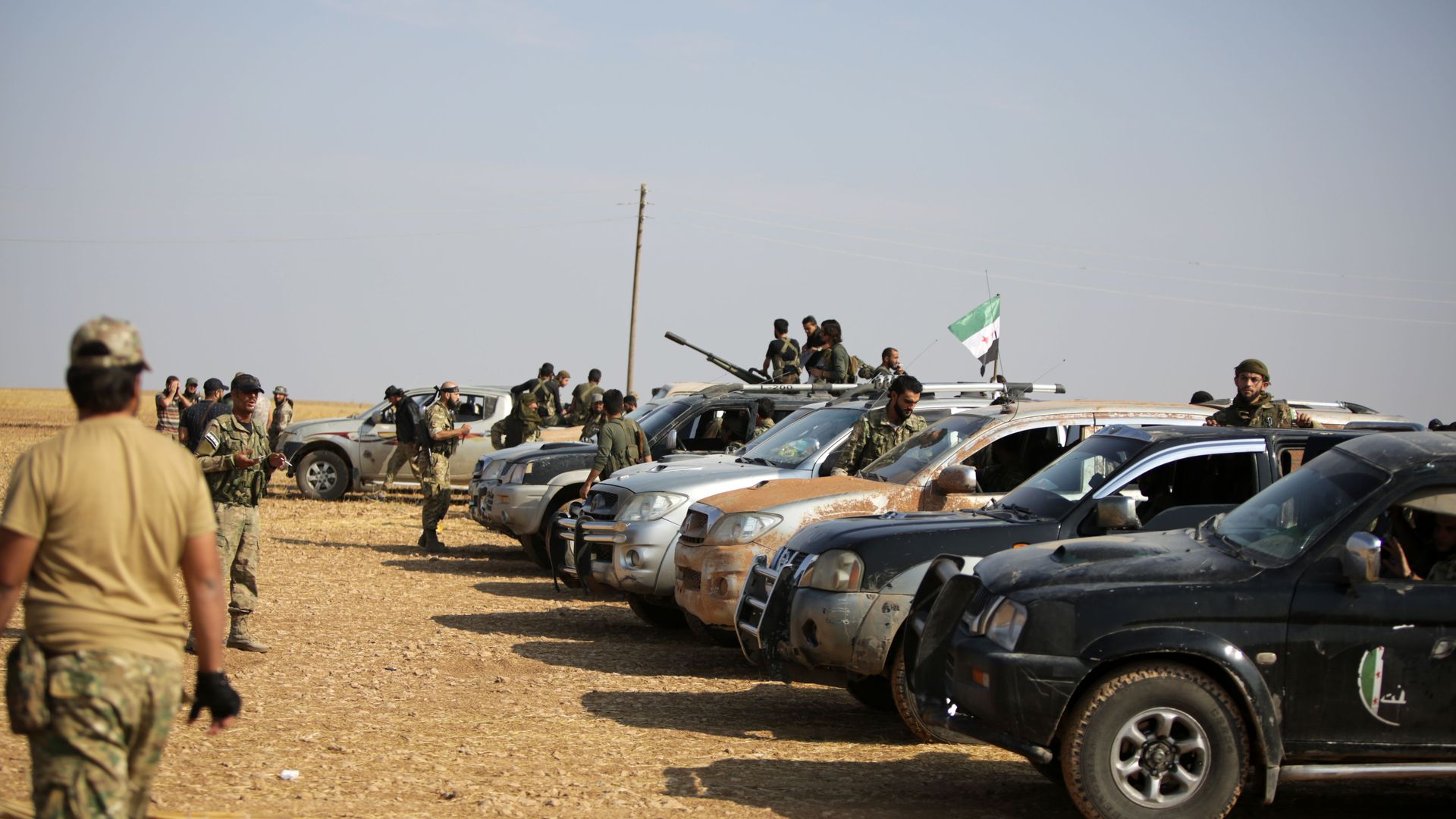Syria's northeast still at risk after "safe zone" deal
Add Axios as your preferred source to
see more of our stories on Google.

Turkey-backed Syrian fighters outside Tal Abyad, Syria. Photo: Bakr Alkasem/AFP via Getty Images
The agreement reached between Russia and Turkey on Tuesday for a "safe zone" 20 miles into northeast Syria secures a goal long sought by Ankara, but the current ceasefire remains fragile and the deal carries challenges of its own.
The big picture: The deal solidifies the diplomatic marginalization of the U.S. in an area where until weeks ago it had been a stabilizing force. Nevertheless, President Trump hailed the agreement as a "huge success" and announced that the U.S. would lift its recent sanctions on Turkey.
Where it stands: The Kurdish People's Protection Units (YPG) now has 150 hours to complete its withdrawal before Russian and Syrian government forces launch joint patrols with Turkish forces inside the zone.
- Turkey will retain direct control over a roughly 70-mile stretch of land between the towns of Tal Abyad and Ras al-Ain, much of it seized in the last few weeks. YPG fighters withdrew from this area under the terms of the ceasefire negotiated between the U.S. and Turkey last week.
- Most of the remaining 1,000 U.S. troops have redeployed to Iraq. A U.S contingent may remain in Deir ez-Zor to guard the region’s oil supply, but such a small presence would likely not have a meaningful strategic impact.
Between the lines: Despite fanfare in some quarters, the Russia-Turkey deal suffers from serious challenges.
- The YPG is not party to the agreement, and its fighters are unlikely to voluntarily abandon Syrian Kurds who live in these towns and villages within six days.
- It's not clear that the Bashar al-Assad regime and Russia are in a position to directly compel their withdrawal (Damascus and Moscow are already in the midst of a campaign next door in Idlib province). Rather, Russia has warned the Kurds to pull out of the safe zone or risk being crushed by Turkey.
- Despite its assurances to President Trump, Turkey is still poised to press its invasion of northeast Syria. If it tries to fully clear the YPG from the border area, Turkey would once again employ its Syrian proxy militia, which has committed horrific abuses against Kurdish civilians in recent weeks.
The bottom line: Renewed conflict in northeast Syria is increasingly likely. Further violence could pave the way for ethnic cleansing, forcing hundreds of thousands of additional Kurdish civilians to flee their homes and letting Turkey resettle the safe zone mainly with Syrian Arab refugees.
Hardin Lang is vice president for programs and policy at Refugees International.
